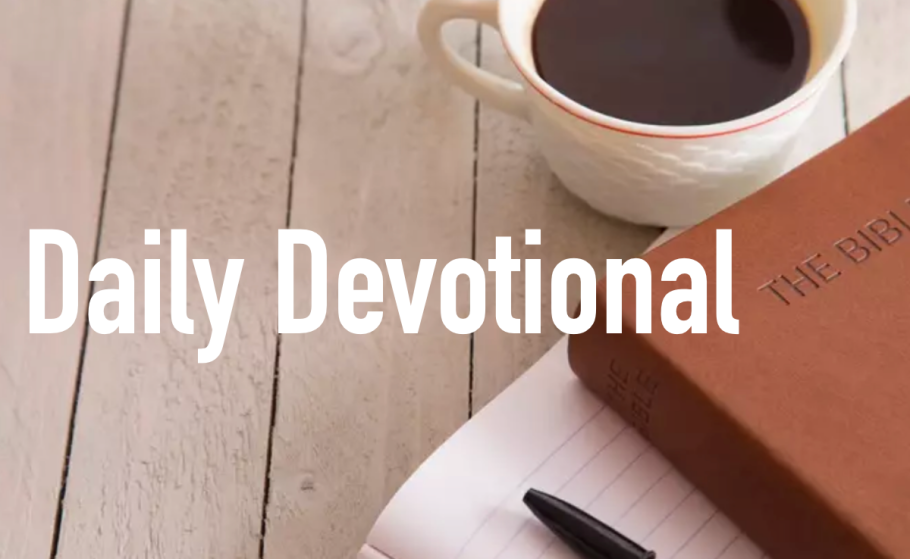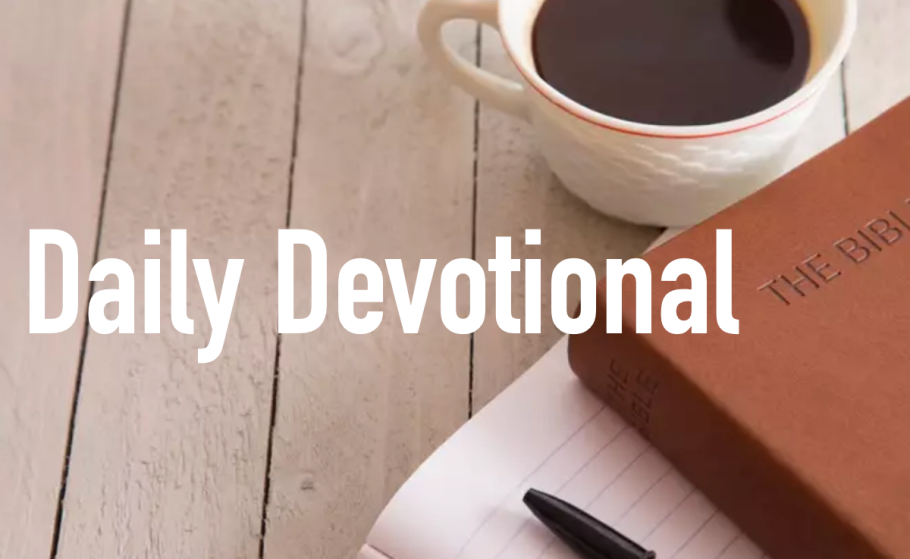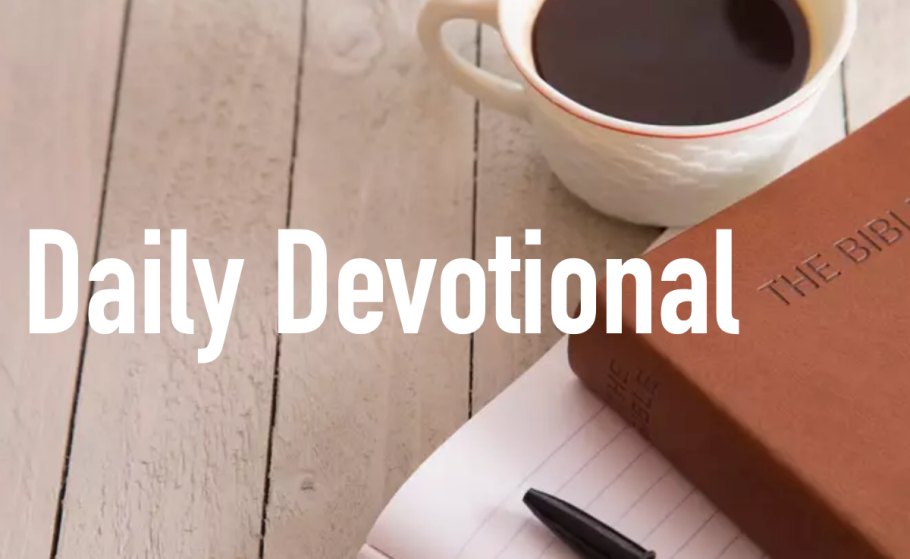
Fat Bear Week is held every year at Katmai National Park in Alaska. Twelve bears are entered into a bracket-style competition, with online viewers voting based on the bears’ success at fishing for salmon from the Brooks River. The winner in 2023 was a female bear named 128 Grazer. The National Park Service has been tracking her since she was a cub and called her one of the most skilled anglers in the region.
Luke 5 contains another good fishing story. Jesus boarded Peter’s boat so that He could put out from shore a bit and better teach the crowds. Sadly, Peter and Andrew hadn’t caught any fish all night. When Jesus gave the word, though, they let down their nets and miraculously caught so many that the nets were near breaking and the boat near sinking (vv. 6–7). They had to call James and John to help!
Peter knew he was in the presence of a Man who could do the impossible. He felt “astonished” at Jesus’s awe-inspiring display of power over creation, as well as a strong sense of his own sin and unworthiness. He fell at Jesus’ knees and said, “Go away from me, Lord; I am a sinful man!” (v. 8; see Isa. 6:5). In short, he felt the fear of the Lord. Though Peter had turned in the right direction, toward Jesus, the Lord still had to tell him, “Don’t be afraid” (v. 10). All four fishermen responded in faith to this miracle and to Jesus’s compelling and somewhat humorous call, “From now on you will fish for people” (vv. 10–11).
In this episode, Peter and the others felt God’s power and authority. They sensed that Jesus was the Son of God. They felt a fear that pulled them toward Him, and they left everything to become His disciples.
Go Deeper
How firm is your loyalty to being Christ’s disciple? What are you willing to do or endure? Compare your answers to the cost of discipleship outlined in Luke 14:25–27.
Pray with Us: Dear Lord, help us better understand the true cost of following You, of sacrifices and rewards of discipleship, and what it means to die to ourselves. Thank You that we can experience You through Your Word the way Peter and others did.

Why did Rahab betray the city of Jericho to the invading Israelites (Joshua 2)? She told the two spies: “I know that the LORD has given you this land and that a great fear of you has fallen on us, so that all who live in this country are melting in fear because of you. ...When we heard of it [Israel’s victories], our hearts melted in fear and everyone’s courage failed because of you, for the LORD your God is God in heaven above and on the earth below.”
Because the people of Jericho stood against God, fear of the Lord was just plain fear. But when Rahab switched sides, she chose to worship the one true God. Her fear turned to awe, reverence, and delight. Ezekiel felt similarly in today’s passage. While initially overwhelmed by his visions of God, he later felt strengthened and called to ministry (see chapters 2–3).
At first, Ezekiel saw what looked like a windstorm, with clouds and flashing lightning. When it came closer, he saw four angels (cherubim) with otherworldly appearances (vv. 5–14, 22–24) and the wheels-within-wheels by which they moved (vv. 15–21). They were impressive, but they were only God’s messengers, or attendants.
Finally, God is described indirectly by way of a vaulted sky, a throne, and “a figure like that of a man” (vv. 25–28). His appearance like glowing metal and fire represents God’s power and glory. He’s also compared to a rainbow’s appearance after the rain. The passage informs us that this was only “the appearance of the likeness of the glory of the LORD.” A direct description or vision wasn’t possible.
When he saw this vision, Ezekiel “fell facedown” in extreme awe, humility, and respect (v. 28). Many others in Scripture have also done so, including Abram (Gen. 17:3) and the three disciples during the Transfiguration (Matt. 17:6).
Go Deeper
What exactly is holy fear? How can the fear of the Lord overwhelm us and yet at the same time draw us nearer to Him?
Pray with Us: Ezekiel saw only “the appearance of the likeness of the glory of the Lord” (Ezek. 1:28). Thank you, Lord, for speaking to us through Your Son who is “the radiance of God’s glory” (Heb. 1:3).

A good woman is priceless! Nonetheless, Salary.com recently tried to appraise the financial value of a stay-at-home mom. Based on the market value of the skills she needs and uses daily, their analysis estimated that her annual salary should be $184,820.
But, according to Proverbs 31, her inward character is even more valuable than outward factors. We need to understand that the “wife of noble character”—or literally, “a woman of valor” (v. 10)—is an ideal, not an individual person. The climax of the description is found in today’s verse: “Charm is deceptive, and beauty is fleeting; but a woman who fears the Lord is to be praised” (v. 30). This brings the Book of Proverbs full circle from the first chapter (1:7).
What virtues and actions are associated with her fear of the Lord? She works hard (vv. 13–15, 17, 19, 27), plans wisely (and so “can laugh at the days to come” because she’s not anxious, v. 25), and has good business sense (vv. 16, 18, 24). She’s strong (v. 17), dignified (v. 25), and wise (v. 26). She’s generous toward the poor (v. 20; Prov. 14:31). She takes good care of her family (vv. 15, 21–22, 27), including teaching her children and guiding them toward maturity (v. 26). She supports her husband and he in turn has full confidence in her (vv. 11–12). He’s respected in the community, in part because of her (v. 23). She, too, is respected in the community and praised by her family (vv. 28, 31).
Such a woman’s outward actions flow from her inward virtues, and these in turn flow from her overall orientation of fearing the Lord. The “wife of noble character,” then, is an ideal we can all learn from!
Go Deeper
How might we, men and women, cultivate our inward orientations and virtues? Our culture pushes us toward outward appearances, our brand, our image. How can the fear of the Lord help us resist this?
Pray with Us: Lord, if we are honest, the Proverbs 31 woman seems unrealistic and often intimidating. But, like her, we follow the same God who guides and gives gifts. Help us, men and women, to become people “of noble character” (Prov. 31:10).

In 1985, the Texas Department of Transportation started an anti-littering campaign that, as we would say today, went viral: “Don’t mess with Texas.” Since then, this well-known slogan has become a distinctive indicator of Texan pride and swagger.
“Don’t mess with Israel” might be a good summary of today’s reading. This is what the fear of the Lord feels and looks like to non-worshipers (vv. 10–11). The Philistines and other enemies of Israel did not worship God. They did not respond to His greatness with awe and reverence. But they also weren’t blind. They saw God clearly present and working among His people. What remained, then, was simply fear, or literally, “terror” (v. 10). They were afraid to attack Judah because they knew God was protecting them. In fact, they paid tribute to stay on good terms with them.
For King Jehoshaphat, living in the fear of the Lord, and leading his people to do the same, meant trusting in God’s protection. This didn’t mean he sat on his hands. He made strategic military decisions as well (vv. 1–2). His heart, like David’s, was devoted to the Lord (vv. 3–6). He did not seek idols, and he removed many places of idolatry from around the country. He sought the Lord and followed His commands. He also sent court officials and Levites on a Scripture teaching tour (vv. 7–9). In all of this, the Lord was with him and helped establish his kingdom (see April 10).
The fear of the Lord has a flip side. From the inside, it means awe, reverence, love, obedience, and worship. We draw nearer to God. But from the outside, it means only fear—seeing God at work, but choosing not to worship Him. One day these unrepentant, terrified people will call the mountains to fall on them (Luke 23:30).
Go Deeper
Jesus, we praise You today as our shield and protector! “The name of the LORD is a fortified tower; the righteous run to it and are safe” (Prov. 18:10). When we encounter obstacles and opposition in our lives, may we run to You.
Pray with Us: Jesus, we praise You today as our shield and protector! “The name of the Lord is a fortified tower; the righteous run to it and are safe” (Prov. 18:10). When we encounter obstacles and opposition in our lives, may we run to You.

On the road to the Celestial City in Bunyan’s Pilgrim’s Progress, Christian stops to rest at the Palace Beautiful. There he meets four sisters— Discretion, Piety, Prudence, and Charity (that is, Love). They listen to the story of his journey and teach him valuable spiritual truths. They also encourage him with a vision of the future (Immanuel’s Land) and outfit him in the armor of God, which he will soon need for his battle with the demon Apollyon.
Similarly, in Proverbs 9, we are called to visit the House of Wisdom (vv. 1–4). This house is a welcoming place. Wisdom has set her table for a banquet and sent out invitations. The meal will be delicious. The “seven pillars” of her house symbolize perfection. Who is especially invited (vv. 4–6)? The “simple,” meaning those who are young, naive, or immature. They lack sense, but they can grow and eventually learn to “walk in the way of insight.”
Who is more likely to accept or reject Wisdom’s invitation (vv. 7–9)? Those who are humble enough to accept instruction, correction, and rebuke will probably accept the invitation to learn more. Those who are unwilling, however—the mocker and the fool—will reject the invitation and even respond to it with insults and abuse. Frankly, how we respond to the invitation indicates which category we belong to or desire to join.
The rewards of wisdom are clear (v. 11). Wisdom leads to long life and blessing (see Prov. 10:27). By contrast, for those who enter the House of Folly, “her guests are deep in the realm of the dead” (v. 18). Where does the journey to wisdom start? The answer is the same as we’ve seen in recent devotions: “The fear of the LORD is the beginning of wisdom” (v. 10).
Go Deeper
Verses 13–18 give a contrasting invitation to the House of Folly. In what ways does this invitation differ from the first? Which features of both stand out to you and why?
Pray with Us: Our Father, how we want to reach the House of Wisdom, to eat at the Wisdom’s banquet! We want to “walk in the way of insight” (Prov. 9:6). Guide us to this House every step of the way, we pray, and keep us away from the House of Folly.

